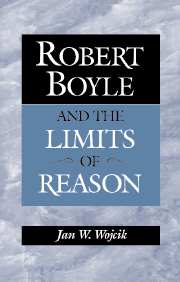Book contents
- Frontmatter
- Contents
- Preface
- Acknowledgments
- Introduction
- Part I The Theological Context
- 1 Things above Reason: Medieval Context and Concepts
- 2 The Threat of Socinianism
- 3 Predestination Controversies
- 4 Theology and the Limits of Reason
- Part II The Context of Natural Philosophy
- Conclusion
- Bibliography
- Index
3 - Predestination Controversies
Published online by Cambridge University Press: 24 November 2009
- Frontmatter
- Contents
- Preface
- Acknowledgments
- Introduction
- Part I The Theological Context
- 1 Things above Reason: Medieval Context and Concepts
- 2 The Threat of Socinianism
- 3 Predestination Controversies
- 4 Theology and the Limits of Reason
- Part II The Context of Natural Philosophy
- Conclusion
- Bibliography
- Index
Summary
Theological controversies in seventeenth-century England show clearly the impact of the proliferating and often contradictory interpretations of scripture that accompanied the development of Protestantism. And one of the most passionate controversies of all was the apparently endless one over the correct interpretation of predestination. As a modern commentator has aptly observed, “the Calvinist-Arminian controversy placed great strain on Luther's doctrine of the perspicuity of Scripture.” With the fate of his or her soul at stake, it was crucially important that each individual discover which of the conflicting interpretations was uniquely correct, for surely God knew which was true and surely God would punish those who erred. Further, the fate of the nation itself was at stake, for surely God's pleasure or displeasure would affect the course of national and international events. Hence it was crucially important that the divines of the Church of England determine correct doctrine and establish styles of worship that would be pleasing to God.
- Type
- Chapter
- Information
- Robert Boyle and the Limits of Reason , pp. 76 - 94Publisher: Cambridge University PressPrint publication year: 1997

